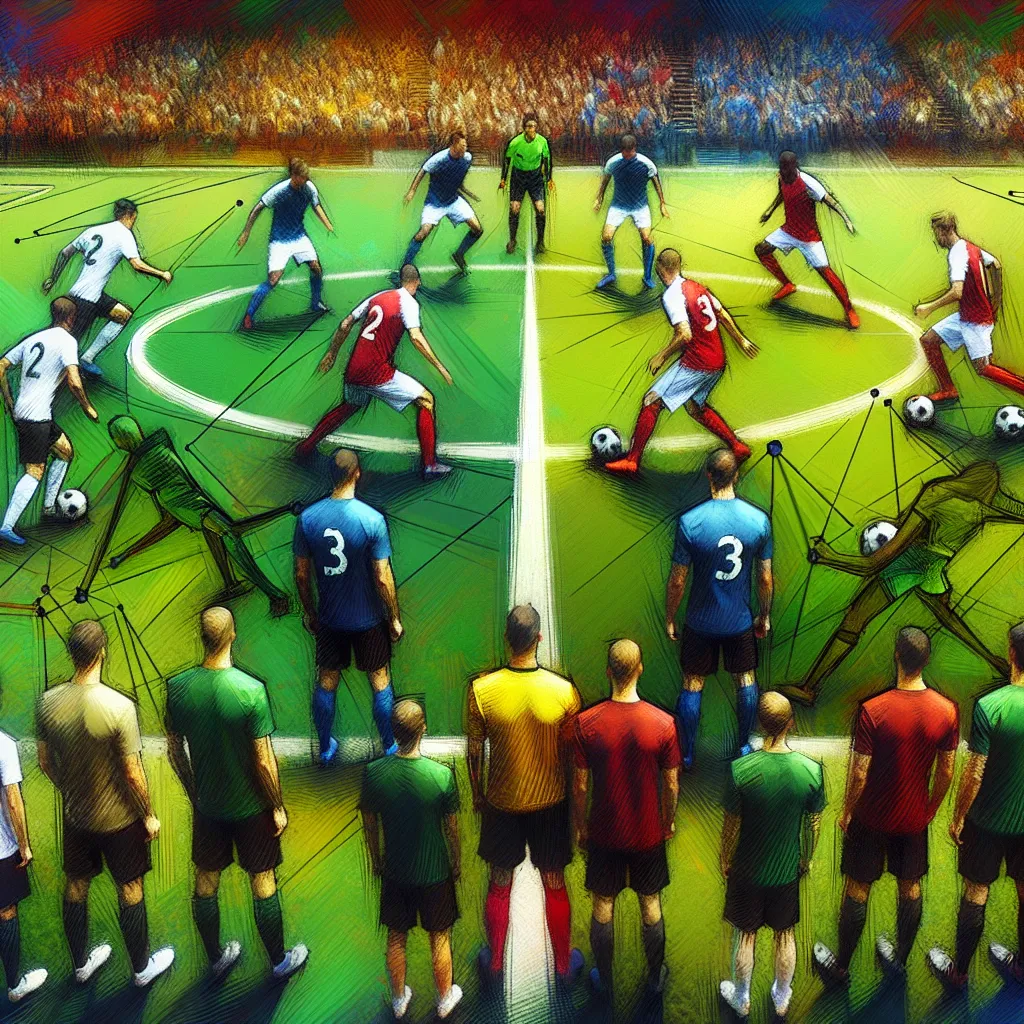
- Published on
- Authors

- Name
- Sports Tips
Implementing the 5-4-1 Formation for Defensive Resilience
In the world of soccer tactics, the 5-4-1 formation is often overlooked in favor of more glamorous, attack-oriented setups. However, this formation provides unparalleled defensive stability while creating opportunities for devastating counter-attacks. Whether you’re a player or a coach, understanding the complexities and nuances of the 5-4-1 can add a powerful tactic to your strategic arsenal.
Defensive Stability
The Defensive Line
One of the standout features of the 5-4-1 formation is its robust defensive line, comprised of five defenders. This setup enhances the Teams ability to ward off sustained pressure from the opposition. The primary function of this line is to ensure that there are always enough players behind the ball, covering all potential attacking lanes.
| Position | Role |
|---|---|
| CB | Central Back - Command the central area of the defense. |
| LWB | Left Wing-Back - Provide width in defense and attack. |
| RWB | Right Wing-Back - Similar to LWB, but on the right side. |
| LCB | Left Center-Back - Supports the central defense and the LWB. |
| RCB | Right Center-Back - Supports the central defense and the RWB. |
The wing-backs (LWB/RWB) are crucial as they contribute to both defense and attack, essentially playing a dual role. They must possess a high level of stamina and tactical acumen to balance their responsibilities.
The Midfield Shield
In front of the five defenders, the four midfielders act as a secondary line of defense, providing additional coverage and intercepting passes. Their role is to track back and support the defense when the team is out of possession and quickly transition to offense when the ball is regained.
| Position | Role |
|---|---|
| LM | Left Midfielder - Covers the flank and supports the LWB. |
| RM | Right Midfielder - Covers the flank and supports the RWB. |
| CM | Central Midfielder - Offers central support and ball distribution. |
| DM | Defensive Midfielder - Screens the defense and breaks up plays. |
The presence of a defensive midfielder (DM) is integral, as this player shields the defense by closing down space and making crucial interceptions.
Counter-Attacking Potential
While the 5-4-1 formation is inherently defensive, its structure allows for swift and effective counter-attacks. Here’s how:
- Quick Ball Recovery: With a fortified defense and midfield, the team can efficiently regain possession.
- Rapid Transitions: Once the ball is recovered, the midfielders (especially the Central Midfielders) can quickly transition the play to the lone striker.
- Wide Play: The Wing-Backs (LWB/RWB) can surge forward, exploiting the flanks and providing crosses or taking on defenders.
- Lone Striker Role: The Striker must possess excellent hold-up play to allow midfielders time to catch up and support the attack.
Coaching Tips
- Drills for Wing-Backs: Incorporate drills that enhance endurance, speed, and crossing ability for wing-backs, as they need to cover a lot of ground.
- Positioning Practice: Emphasize the importance of positional awareness for the midfield and defensive lines to maintain a compact shape.
- Transition Training: Conduct sessions focused on transitioning from defense to attack, highlighting the roles and movements of each position during a counter-attack.
- Communication: Foster excellent communication between the defensive line and the midfield, ensuring cohesive defensive maneuvers.
Player Wisdom
- Defenders: Stay disciplined and maintain your line. Always be aware of your positioning relative to both the ball and your teammates.
- Midfielders: Be prepared to drop deep and support the defense but also be ready to spring forward during counter-attacks.
- Wing-Backs: Balance your defensive duties with the need to provide width in attack. Use your stamina wisely.
- Striker: Perfect your hold-up play and be prepared to work off limited service. Anticipate long passes and be ready to link up with rapidly advancing midfielders.
Conclusion
Implementing the 5-4-1 formation provides teams with a solid defensive foundation while retaining the flexibility to launch effective counter-attacks. With the right personnel and disciplined execution, the 5-4-1 can be a game-changer, offering a blend of security and attacking potential that is tough to beat. Whether for closing down games, facing stronger opponents, or shoring up a leaky defense, mastering this formation can give your team the edge it needs.
